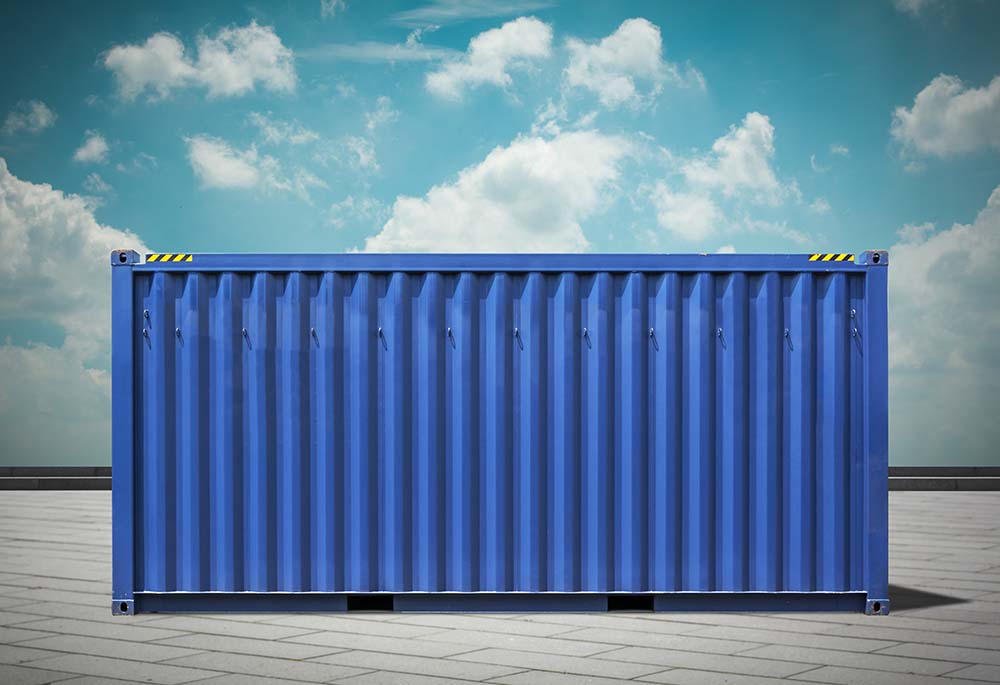The great thing about shipping containers is that they are fast becoming a strong alternative for green living. Many people are converting shipping containers into mini homes and living off the grid. Or alternatively, a couple of shipping containers fused together can be converted into a convenient annex for your garden. There are countless uses for them and as they are becoming more and more prevalent, it raises some important questions: do you need planning permission to put a container on your land?
In Australia, the official answer is yes. But there is more to it, which we will get into in this article. Read on for more information, so that you will know exactly where you stand when moving forward…
Is a shipping container considered a structure or building?
Officially, a shipping container is considered a structure/building. Even if you are simply using the container as a shed to store tools and other bits, it is still technically considered as a building. This is why planning permission will be required if you wish to place a shipping container on your land.
Can I put a container home on my land?
You can indeed put a shipping container on your land. Of course, as mentioned above, you will need to go through the relevant authorities before moving ahead.
Any planning permission applications must be submitted to your local authorities, along with plans signed by 3 official notaries (i.e., architect, structural engineer, and a local councillor).
In addition to that, there are many areas in Australia that will also have regulations on the type of foundations that are required, for a particular area.
Of course, there is an alternative. If you have your own land in an area of the countryside, then you may be able to get away with it. The rules will be slightly more flexible, and there will likely be nobody paying attention. That being said, you will be doing so at your own risk and we do not condone this.
However, if you are based in any major city in Australia, then you must be prepared for a local inspector to come along and check your construction project out within a few days. Proceeding without the necessary permissions can get you into trouble, so be mindful!
Can you live in a prefabricated container home?
As mentioned above, shipping containers are becoming a popular housing choice across the world right now. Many people are trying to downsize their lives and live a more minimalistic lifestyle. A shipping container converted into a mini home is a great way of doing this.
Of course, the great thing about it is that there is no limit to how many containers you can use. Hypothetically speaking, there is no limit to the number of shipping containers you can use to construct your home, so, if you wish to convert a tonne of shipping containers into your very own scrap mansion, then by all means go ahead!
That said, in Australia, you will need the necessary permissions before going ahead. And even after you have secured the necessary planning permissions to convert your shipping containers and place them on your land, you will then need to register it as an official property through the official channels.
In any case, you can indeed live in a prefabricated container and it is growing immensely in popularity.
Can an ex-pat live in a shipping container in Thailand?
Another important question is whether or not ex-pats can live in shipping containers in Thailand, and the short answer is yes.
Naturally, it is always a little more complicated than that. This is because of the visa regulations and the fact that ex-pats cannot own land outright. Of course, there are always ways around it, and any reputable company will be able to advise you on the best course of action so that you are living by the book.
This is a growing market that is becoming more and more attractive to ex-pats on a retirement visa, as a cheap alternative to living in Thailand. Of course, life in Thailand for an ex-pat isn’t exactly terribly expensive, but if there are cheaper, greener ways of living, then a shipping container conversion is certainly up there among the best options.
Fun facts about shipping containers
It is estimated that somewhere between 2,000 and 10,000 shipping containers are lost at sea each year. This is a terrible waste, particularly considering the fact that a single shipping container can hold up to 8,000 shoe boxes at a time. That said, nature will reclaim these containers and convert them into little homes of their own! Turns out it’s not just people who like living in these containers, but sea creatures as well!
Another interesting fact about shipping containers is that 97% of them are manufactured in China! That’s right, so when you move into your freshly converted shipping container home, be sure to say a little thank you to our friends in China!
Conclusion
In conclusion, yes you will need planning permission to have a shipping container on your land. And yes, you can indeed convert it into a home for living in. So long as you follow the necessary protocol and go through the relevant authorities, you shouldn’t run into any problems along the way.
Simply do your research and seek legal counsel if you are uncertain about how best to proceed. In any case, we wish you the very best of luck with your new venture and hope that you enjoy your beautiful and convenient new home!


